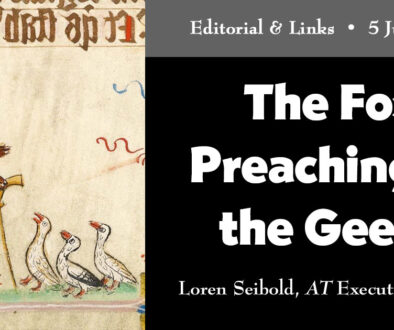Sharing Scripture–June 13-19, 2021
[symple_heading style=”” title=”Covenant Faith” type=”h1″ font_size=”40″ text_align=”center” margin_top=”0″ margin_bottom=”30″ color=”undefined” icon_left=”” icon_right=””]
This is a tool for you to use if you lead a Sabbath School (SS) class or small group. It is keyed to the Bible texts used in the current week’s Adult SS lesson and includes a brief story from current news you can use to introduce the discussion and then a series of discussion questions in a relational pattern designed to build fellowship and spiritual reflection.
For use: June 13-19, 2021
Texts: Galatians 6:14; Romans 6:23; 1 John 5:11, 13; Romans 4:1–7; Leviticus 7:18; Leviticus 17:1–4; Romans 5:1
Gilbert Poole is tasting freedom for the first time after spending 32 years in prison for a murder that DNA forensic evidence now proves he did not commit. His exoneration came after 18 years of tireless work put forth by the Western Michigan University (WMU) Cooley Law School Innocence Project.
During his release hearing, Poole reflected on how he fought the powerlessness he felt behind bars, stating, “God stepped in and sent me a band of angels to look past the rules and regulations and look to see who was standing here in the furnace.”
Just as Poole, unable to save himself, put his faith in the interns at the WMU Cooley Law School Innocence Project, we put our faith into Jesus Christ, who died as our Substitute. Unlike the Innocence Project, however, our Advocate does not need to persuade a judge or jury to hear and overturn our case. Our Advocate is our Judge.
We also see in these two cases how law, meant to preserve justice, can be abused when seen as the absolute rather than as guidelines to helpful community living.
Looking back at the Old Testament, the laws of Moses are revealed to guide a sinful Israel into alignment with God. This set of rules set forth for the Israelites had no power to save them; rather, it was a list of guidelines to reveal to them their sinfulness and a need for right relationship with, and faith in, their Creator.
Unfortunately, the Israelites failed to adhere to the laws, as well as to maintain faith in God. Many turned to strict adherence to Levitical law and forgot about the role faith played in God’s covenants with Abraham, Isaac, Jacob, and the other forefathers of those who would become the Jewish nation. Paul constantly reminds his audiences of this fact.
Romans 4 sums up the issue succinctly. Abraham’s faith was credited to him as righteousness. This credit also applies to those of us who believe in the Lord who died to fulfill the law and to save us.
The wages of sin, and comparably a broken legal system, is death; but the gift of our Advocate, our Substitute, is life (Romans 6:23).
~Stefani Leeper
[symple_divider style=”solid” margin_top=”20″ margin_bottom=”10″]
Connecting: San Marino boasts the oldest acting constitution in the world, and its legal system operates based upon it. What are some of the advantages and limitations of a constitution that seems to defy the test of time?
Sharing: If the Levitical law, just as human-made laws, can become obsolete and outdated, what does that imply about biblical beliefs such as abstaining from premarital sex or keeping the Sabbath?
- The Levitical law is fulfilled in Christ, but the 10 Commandments must still be upheld
- Commandments applied only to time and place; there are exceptions to every rule
- They are guidelines for healthy holistic living but do not need to be stringently followed
- The laws of Moses are still perfectly viable
- I don’t know
- Other:
Applying: Poole compared his experience to that of Shadrach, Meshach, and Abednego (Daniel 3). In the end, their oppressors’ eyes were opened to the errors of their ways and they made amendments. We are all guilty of falsely accusing someone, at least accidentally. Did you ever apologize? If you have not yet, and if you feel comfortable doing so, you may choose to make an effort to apologize for the accusation. You might also choose to pray for their healing.
Valuing: What is a rule your parents/guardians upheld during your childhood that you eventually grew out of (e.g., sleeping curfew, sugar restrictions, work before play)? How did that rule influence your growth and development, even if it lost its applicability over time?
~ Stefani Leeper
Photo credit: Google Meet




